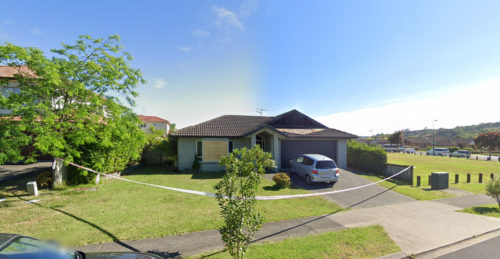
A tenant has been ordered to cough up $20,000 in back rent for a Flat Bush house that was badly damaged by fire and which was also used for a cannabis growing operation.
The Tenancy Tribunal at Manukau has ruled that Hiep Tuan Luu must pay landlord Barfoot & Thompson $22,902.81 – most of it for rent. After the bond was extracted, Luu was left with a bill of $20,022.81.
Barfoot & Thompson and Luu had entered into a tenancy agreement for a fixed time from July 6, 2019 to July 6, 2020 for the Kalmore Place property.
Luu said he knew nothing of the cannabis operation there. He claims his co-tenant Pham Thuy Thi left him in the lurch having backed out of the arrangement at the start which meant he could no longer afford the tenancy.
He says he sub-let the property to someone he had worked with in New Zealand some years ago, and moved out. The sub-tenants, the tribunal decision reads, paid rent to him and he continued to pay rent in line with his tenancy agreement. The rent was paid until December 13.
The tribunal noted that Luu was being paid a greater weekly rent by his sub-tenants than the rent due to the landlord under the tenancy agreement.
Luu accepts he did not request permission to sublet the property.
On November 30 there was a fire which caused extensive damage and cost around $400,000 to repair.
The fire brigade said that the fire happened because someone had connected to the electricity supply before the meter and bypassed the circuit board, causing the wiring to become overloaded.
Police confirmed that the fire service discovered two rooms being utilised for a cannabis grow operation which included apparatus for lighting and ventilation. The fire was caused by a poorly-wired electrical diversion to supply the cannabis grow operation.
Luu says he did not know anything about drugs at the property. The tribunal noted that Luu attended a routine inspection at the property on October 22 with the property manager (the sub-tenant had returned to Vietnam and asked him to attend in his place).
The inspection report does not identify or show anything untoward in the bedroom later used for illegal activity.
The tribunal said the tenants signed a fixed-term tenancy and were jointly liable for rent until July 6 this year.
Luu said it was unfair that he should be liable for the rent to the end of the tenancy given that insurers paid the landlord $20,000 for lost rental income. The tribunal noted however that it is a general principle that insurance payments do not reduce liability for damages.
“The law of subrogation may require the landlord to account for any recovery to insurers, but the insurance payment does not reduce the tenants’ liability for rent,” the decision reads.
“The purpose of requiring tenants to obtain the landlord’s permission before assigning, subletting, or parting with possession, is to enable the landlord to regulate who lives in the property.
“This protects the landlord from having the premises used in an inappropriate way, or by an undesirable occupier.
“A landlord may wish to obtain references or do other checks to ensure a prospective tenant is of good character. In this case, the landlord was deprived of that opportunity and was not asked for permission for any change in occupation.
“It was Mr Luu’s decision to allow individuals, unknown to the landlord, to reside at the property. They might not have had an opportunity to use the premises for illegal activities, and the property might not have been significantly damaged, if Mr Luu had complied with his obligations as a tenant.”






